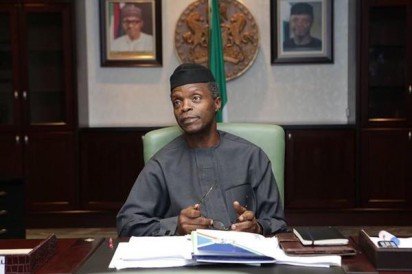
A news report indicating that the Federal Government has approved the appointment of Transaction Advisers for two state-owned power assets is welcome. This heralds the sale of a majority equity in the Afam Power Plc and the Yola Distribution Company to complete the first phase of the privatisation of public power companies begun in 2013. President Muhammadu Buhari’s administration should use this opportunity to get privatisation and the troubled power sector right.
A report in this newspaper said the National Council on Privatisation, the body that oversees the Bureau of Public Enterprises and headed by the Vice-President, Yemi Osinbajo, has approved the hiring of reputable advisors for the GenCo and DisCo. Earlier, the Director-General of BPE, Alex Okoh, had hinted that selling the pair could fetch up to N400bn for the treasury. This sum, he said, would partly fund the 2018 national budget. Afam power in Rivers State generates over 1,000 megawatts of electricity and an earlier attempt to sell it in 2011 fell through, while Yola DisCo serves Adamawa, Borno, Yobe and Taraba states.
This is the first major privatisation, if it comes into fruition, for a government that is known to favour statism over private capital. It is important that this venture should not fail or go the nefarious way of the power sector privatisation undertaken in 2013 by the Goodluck Jonathan administration.
A major chance to prove its claim as an agent of change has landed on the laps of the Buhari team. Apart from the President, Osinbajo, Okoh and Power, Works and Housing Minister, Babatunde Fashola, have a historic opportunity to redirect both the power sector and privatisation by doing this right and creatively.
While privatisation has been given a bad name in Nigeria, the power sector asset sales introduced a lasting stench. The then VP and chair of NCP, Namadi Sambo, in 2011 told a stunned nation that 80 per cent of privatised state-owned enterprises had failed or was failing, a figure similar to that given by the House of Representatives. A classification of only 37 per cent, that is 52 firms out of 142 SOEs, sold since 2003 as “non-performing” by the BPE is a minority view. To most Nigerians and investors, the asset sales have been marred by cronyism, manipulation, opacity and deliberate shutting out of reputable international investors in order to favour local influence peddlers and officials.
Nowhere has this been more glaring and most damaging to the economy than in the power sector sales that handed over generating and distribution assets to some consortia formed by local businessmen and fronts for officials whose lack of financial, technical and managerial ability has left the economy gasping. Unable and unwilling to supply a basic input like billing meter, the government, in addition to previous interventions, has just approved another N37bn loan package for the supply of meters to customers.
Osinbajo and Okoh should, therefore, be mindful of their professional and personal reputations: they should not fail Nigerians as their predecessors did. They should not lose sight of the importance of privatisation and the overriding need to pave the way for a private sector-led economy.
Economists say privatisation brings about structural change by positive property rights, fosters productivity and efficiency, relieves government of the burden of funding businesses, and facilitates domestic and foreign direct investment, including infrastructure funding.
Nigeria, which posted a disappointing 1.9 per cent GDP growth in Q1 2018, urgently needs foreign capital to improve its infrastructure and reverse unemployment put at 14 per cent by the National Bureau of Statistics. Total power available at just over 8,000MW is miserable, compared to South Africa’s 42,000MW and Egypt’s 23,000MW.
A study by the University of Michigan, USA, attributed the transformation of Eastern European economies from centrally planned markets to successful market-led economies that have blended with the European Union today. We can kick-start ours, too, by honest asset sales.
Abysmal failure of the power sector operators dictates that the BPE and the NCP explore more intelligent options than the highest bidder route that has been so badly manipulated to foist misfits on the economy: emphasis should be on the ability of the intending investor to perform and an unassailable track record in developed markets.
The NCP should now speed up the privatisation of all state-owned commercial assets. Buhari has squandered three years holding on to refineries, Ajaokuta Steel, seaports and airports, while allowing the inefficient Nigerian National Petroleum Corporation to deepen its corrosive involvement in wholesale and retail activities. He and Osinbajo should muster the political will and urgency to sell them and more efficiently than their conniving predecessors did with other SOEs.
Everything should be done to woo the best in the world and the rules should liberalise the operating environment, protect national interest and provide incentives and penalties for success or non-performance, respectively. We favour targeted sales to reputable, well established firms from the West and emerging Asian economies, whose clout and name recognition will not only attract FDI, but also lure other global players into the economy.
Osinbajo, Okoh and Fashola should, with the Afam Power and Yola DisCo sale, rewrite the sorry narrative of privatisation in Nigeria and become change agents indeed.
END

Be the first to comment